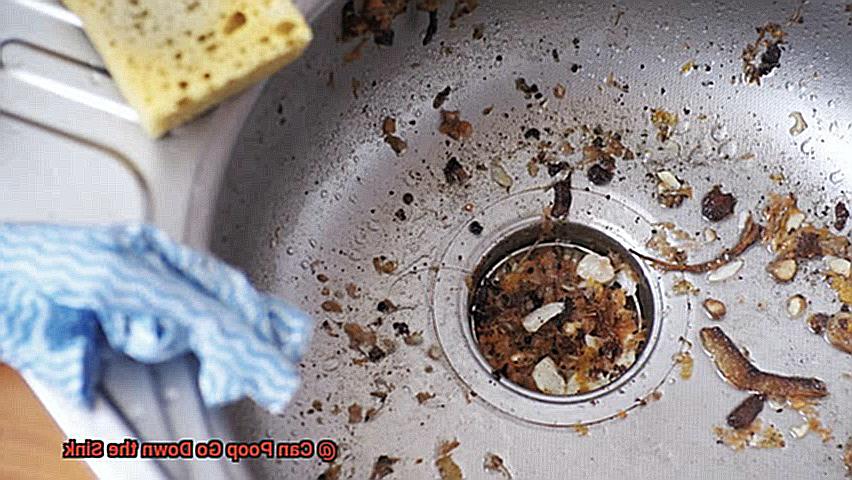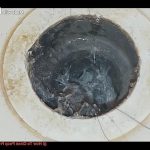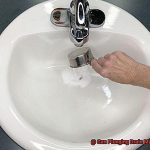Let’s talk about poop – yes, you read that right. While it may not be the most glamorous topic, it’s a natural bodily function that we all experience and should understand how to deal with properly. The question of whether poop can go down the sink has been a puzzling one for many people, especially given the size of most sink pipes.
Picture this: you’re in a situation where your toilet is blocked or out of order, and you have no other option but to use the sink. Or maybe you’re camping in the great outdoors and don’t have access to a proper toilet. Is it okay to let your poop go down the sink? The short answer is no, and I’m here to explain why.
In this blog post, we’ll dive into the science behind plumbing and poop, discussing why it’s crucial to dispose of your waste in a toilet and not down the sink. We’ll also explore the potential consequences of letting your poop go down the drain and provide some practical tips on how to prevent blockages and keep your pipes flowing smoothly.
So whether you’re curious about this topic or find yourself in an urgent situation where you need to make a decision quickly, keep reading for everything you need to know about poop and sinks. Trust me; it’s not as gross as it sounds.
Contents
The Short Answer: No
Perhaps you were in a hurry or didn’t want to stink up the bathroom. But before you make that mistake, let’s get one thing straight: the short answer is no.
Sinks are not designed to handle solid waste like feces. Their pipes are small and meant for liquid waste only. If you flush solid waste down the sink, it can cause severe blockages, clogs, and even potential backups. And that’s just the start of your problems.
When poop is flushed down the sink, it doesn’t disappear into thin air. Instead, it accumulates in the pipes, causing unsanitary conditions and unpleasant odors. Bacteria can grow over time and lead to potential health risks and diseases.
You might think that having a garbage disposal unit installed in your sink would solve this problem. Unfortunately, even garbage disposals aren’t designed to handle solid waste. They’re meant for soft waste like food scraps.
So what’s the solution? Use toilets to dispose of solid waste properly. Doing so will keep your plumbing system in good working order and prevent any unpleasant odors or backups in your bathroom. If you do experience any plumbing issues, it’s always best to call a professional plumber who can handle the problem safely and efficiently.
Why Sinks Are Not Equipped for Poop
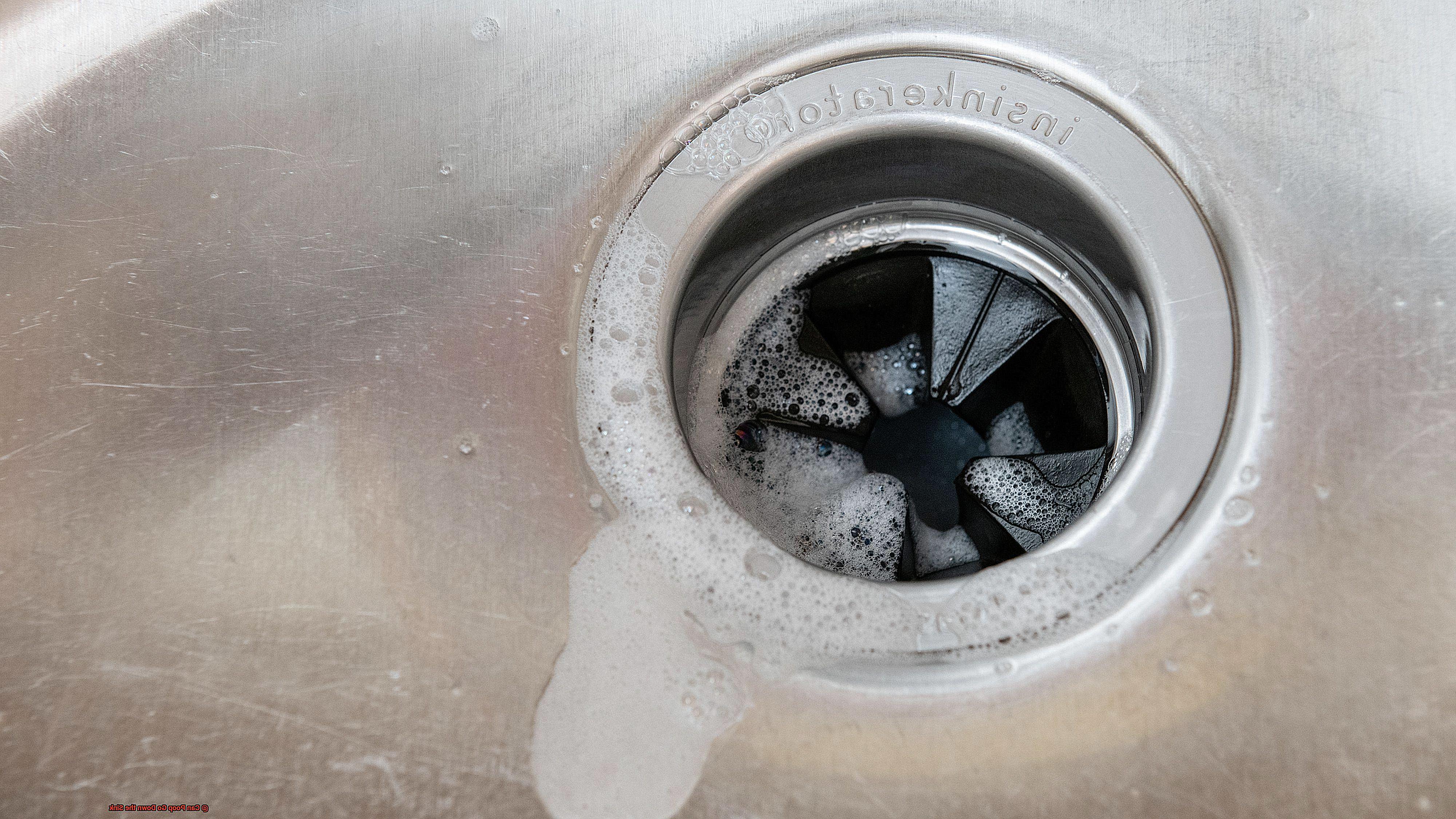
It may seem like an easy solution, but there are several reasons why it’s a bad idea.
Firstly, sinks are not designed to handle solid waste. The drain and pipes of a sink are narrow and only meant to handle liquids. When solid waste is flushed down the sink, it can clog the pipes and cause significant plumbing issues. This could lead to costly repairs, unpleasant odors, and even health hazards.
Secondly, sinks do not have a trap to contain solid waste. A sink trap is a U-shaped pipe located beneath the sink that prevents sewer gases from entering the home. Solid waste can accumulate in the trap and cause blockages and unpleasant odors.
Moreover, flushing poop down the sink can contaminate the water supply. Human waste contains harmful bacteria and pathogens that can cause illness if ingested. Toilets are equipped with a seal that prevents waste from entering the plumbing system until it is flushed properly.
Attempting to Flush Poop Down the Sink
It may seem like a quick and easy solution, but it’s important to know that this is not an effective way to dispose of human waste.
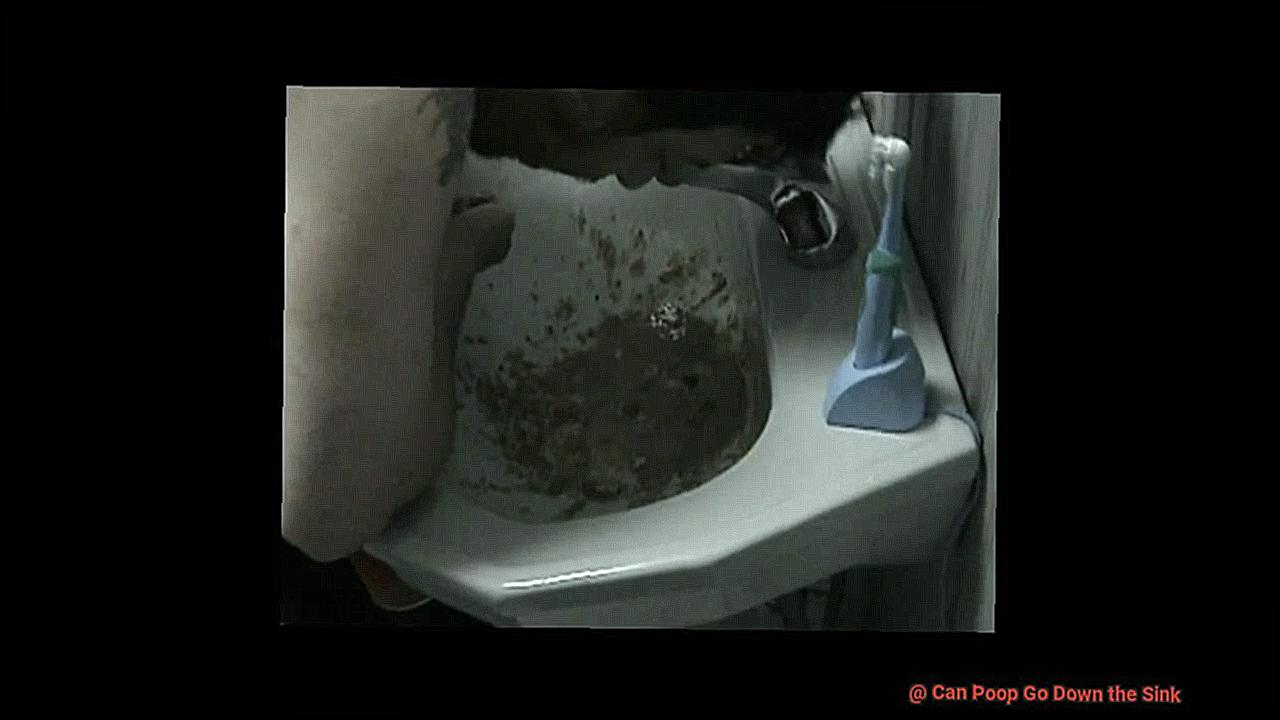
Why is that? Firstly, the pipes in your sink are not designed to handle solid waste. Attempting to flush feces down the sink can cause serious plumbing problems, such as clogs and backups. This can lead to costly repairs or even require a complete replacement of your garbage disposal unit. It’s like trying to fit a square peg in a round hole – it just won’t work.
But that’s not all. Flushing poop down the sink can also be a major health hazard. When feces come into contact with water, they can quickly become a breeding ground for harmful bacteria and viruses that can spread throughout your home. This can cause serious health problems for you and your family, especially if you have young children or elderly relatives living with you. No one wants that.
So, what’s the solution? It’s simple – use your toilet. Your toilet is specifically designed to handle solid waste and safely dispose of it in a sanitary manner. Avoid putting anything else down the sink besides water and liquids specifically designed for sink use.
If you do experience any plumbing issues related to flushing poop down the sink, it is important to contact a professional plumber as soon as possible. Ignoring the problem will only make things worse and potentially cost you more in repairs.
Garbage Disposals and Poop
While it may seem like a convenient solution, putting poop down the sink or garbage disposal is a big no-no that can lead to serious plumbing problems and potential health hazards.
Poop contains solid waste that can easily clog up your pipes, causing costly repairs and even health hazards. Additionally, poop contains bacteria and pathogens that can contaminate your kitchen and bathroom, which is definitely not what you want.
Even if you have a garbage disposal, it is not designed to handle poop or any other solid waste. Garbage disposals are meant for soft food waste like vegetable scraps or small amounts of leftover food. If you put poop down the garbage disposal, it can damage the blades and leave an unpleasant odor in your kitchen.
So, what is the proper way to dispose of poop? The answer is simple – use the toilet. The toilet is specifically designed for human waste and will prevent any potential plumbing issues. However, it’s important to note that only toilet paper should be flushed down the toilet. Other items like wipes, feminine products, and paper towels should be thrown in the trash.
Toilets are Best for Disposing of Poop
It may seem like a simple concept, but there are many reasons why toilets are the best option for disposing of poop.
Toilets are specifically designed for human waste, with a powerful flushing mechanism that safely transports waste through the sewer system to a wastewater treatment plant. This ensures that the waste is processed and treated appropriately, rather than being left to contaminate pipes or water sources.
In contrast, attempting to dispose of poop down a sink or drain can lead to serious plumbing issues. Sink drains are not designed to handle solid waste and can quickly become clogged, resulting in backups and unpleasant odors. Moreover, the bacteria and germs present in feces can pose health risks and contaminate pipes and water sources.
While some people may consider using a garbage disposal unit to dispose of poop, this is not recommended. Garbage disposals are designed for food waste only and can become damaged or clogged when used improperly.
Overall, toilets are the best option for disposing of poop. They are specifically designed for this purpose, and using them appropriately can prevent costly plumbing issues and maintain proper hygiene. Remember to only flush toilet paper down the toilet and dispose of other items like wipes or feminine products in the trash. By doing so, you can ensure that your plumbing system stays healthy while keeping your home clean and safe.
DIY Fixes vs Professional Plumbers
Bathroom issues can be a source of frustration and discomfort, leading many of us to try DIY fixes before calling in a professional plumber. But when it comes to the question of whether poop can go down the sink, it’s crucial to understand the potential risks and consequences of attempting a DIY fix.
While it may seem like a quick and easy solution to flush poop down the sink, doing so can cause significant damage to your plumbing system. Solid waste from poop can clog pipes, leading to blockages that can result in leaks or even burst pipes over time.
Attempting to fix these issues yourself can be both risky and costly. Without proper knowledge or equipment, you could end up causing further damage to your plumbing system, leading to more expensive repairs down the line. Additionally, if you’re not careful, you could expose yourself and your family to harmful bacteria and waste.
That’s where professional plumbers come in. While hiring a professional may seem like an unnecessary expense at first, it can actually save you time and money in the long run. Professional plumbers have the experience and expertise needed to identify and fix any plumbing issues quickly and efficiently. They also have access to specialized equipment that can remove blockages without causing further damage.
So, what’s the bottom line? While DIY fixes may be tempting for minor bathroom problems, attempting to flush poop down the sink is not one of them. It’s essential to consider the potential risks and consequences of a DIY fix and to call in a professional plumber for any plumbing issues involving solid waste.
-9LTXO00aYY” >
Conclusion
In conclusion, the answer to the question “Can poop go down the sink?” is a firm and resounding no. Sinks are designed to handle liquid waste only, and attempting to flush solid waste like feces down the drain can lead to serious plumbing problems. Not only can it cause unpleasant odors and unsanitary conditions in your home, but it can also pose health risks.
The narrow pipes in sinks are not equipped to handle solid waste, which can easily become stuck and cause blockages that require costly repairs or even a complete replacement of your garbage disposal unit. Toilets are specifically designed for human waste, with powerful flushing mechanisms that safely transport it through the sewer system to a wastewater treatment plant.
It’s important to resist the temptation of DIY fixes when it comes to bathroom problems involving solid waste. Attempting to flush poop down the sink is never a good idea and could result in costly consequences. Instead, always use your toilet for disposing of human waste and follow proper plumbing practices.
By following these simple steps, you can avoid potential health risks and keep your home clean and safe. Remember: toilets are best for disposing of poop.

